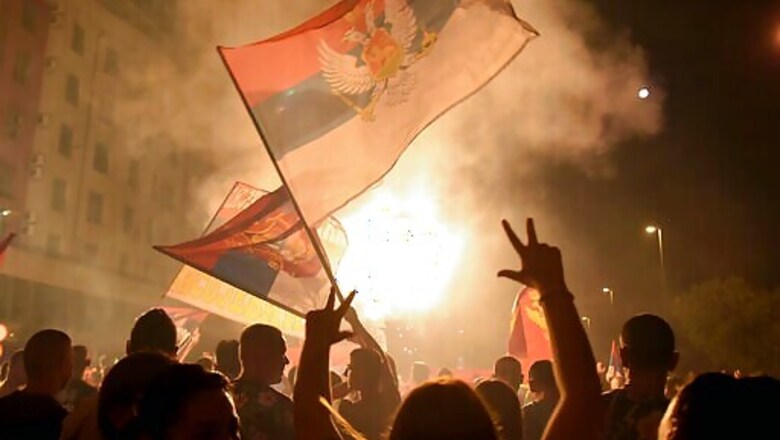
views
PODGORICA, Montenegro: The leaders of the three main opposition groups in Montenegro signed a coalition agreement Wednesday to form the next government and sought to alleviate fears that they would steer the small Balkan state off its pro-Western course and back toward traditional allies Serbia and Russia.
The agreement says that Montenegro will abide by all international obligations undertaken by the previous government, including strengthening ties with NATO and speeding up all necessary reforms for membership of the European Union.
Although Montenegros long-ruling Democratic Party of Socialists won the most votes in the Aug. 30 election, the coalition of the three opposition parties together narrowly won the most seats in the 81-seat parliament, enough for them to form the next government.
This is a proof that the new democratic government will be pro-European, pro-Western and pro-Montenegrin, said the leader of the Peace is Our Nation group, Aleksa Becic, after the signing of the coalition agreement.
There will be no change, just the strengthening of the countrys foreign policy path, Becic said.
The coalition party leaders said that the priority of the new government will be economic development and the fight against endemic corruption which has been one of the main burdens of previous governments.
Tensions soared in the deeply divided nation days after the vote when thousands of opposition party supporters staged boisterous victory celebrations throughout the country. Participants waved Serbian flags and chanted derogatory slogans against Montenegro President Milo Djukanovic, despite appeals by opposition party leaders to refrain from provocations.
Last weekend, tens of thousands Djukanovics supporters staged a massive patriotic” rally chanting anti-opposition slogans.
Djukanovic, who heads the outgoing DPS party, has accused Serbian leaders and their powerful state propaganda of interfering in the election that was held after months of protests by supporters of the Serbian Orthodox Church upset over a property rights dispute in Montenegro.
Djukanovic, who has ruled Montenegro for 30 years either as president or prime minister, has been a key Western ally in pushing the volatile Balkans toward a more pro-Western orientation. Djukanovic defied Russia in 2017 to lead his country into NATO after gaining independence from much larger Serbia in 2006. He has three more years in power before the next presidential election.
___
AP writer Dusan Stojanovic contributed to this story from Belgrade, Serbia
Disclaimer: This post has been auto-published from an agency feed without any modifications to the text and has not been reviewed by an editor




















Comments
0 comment